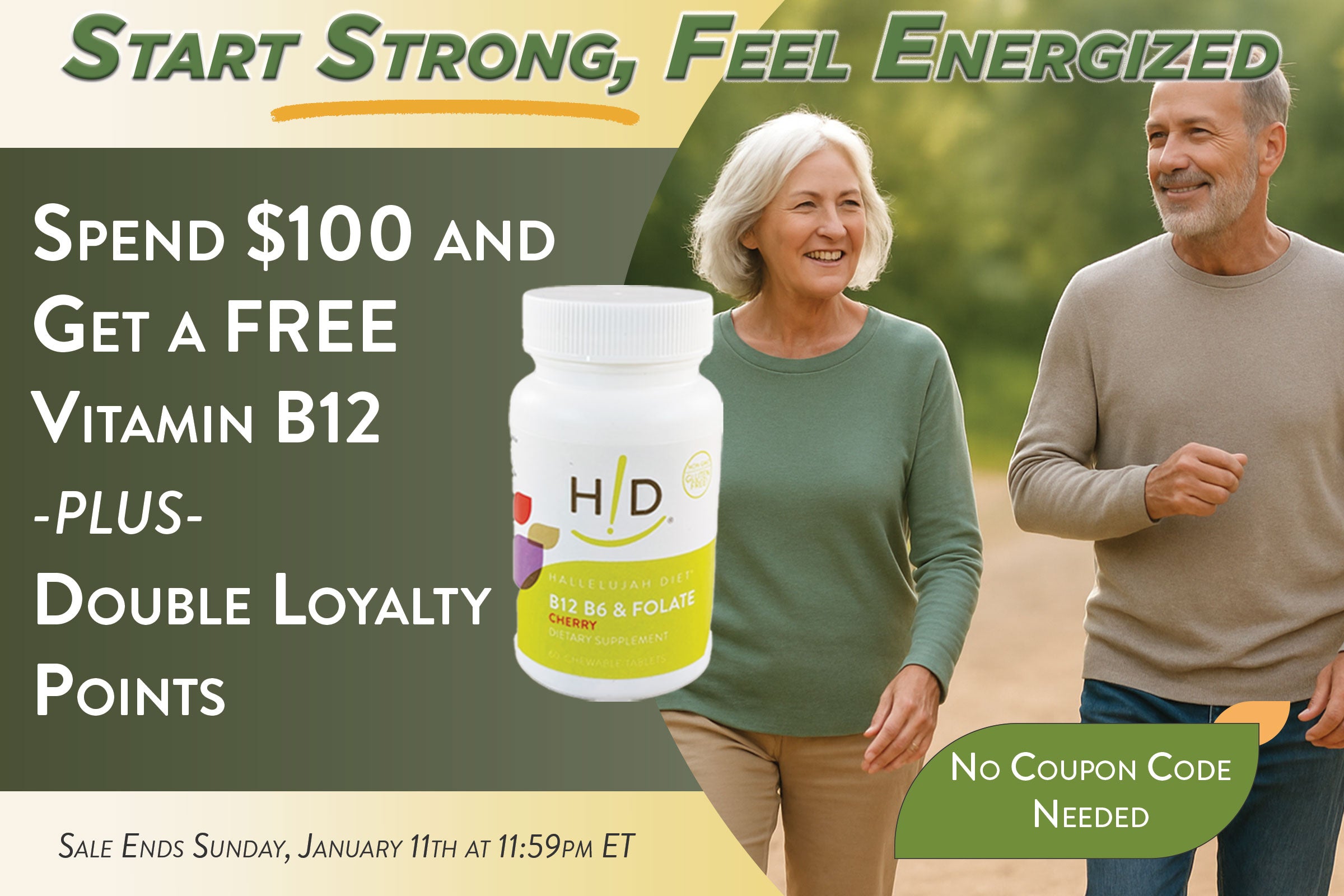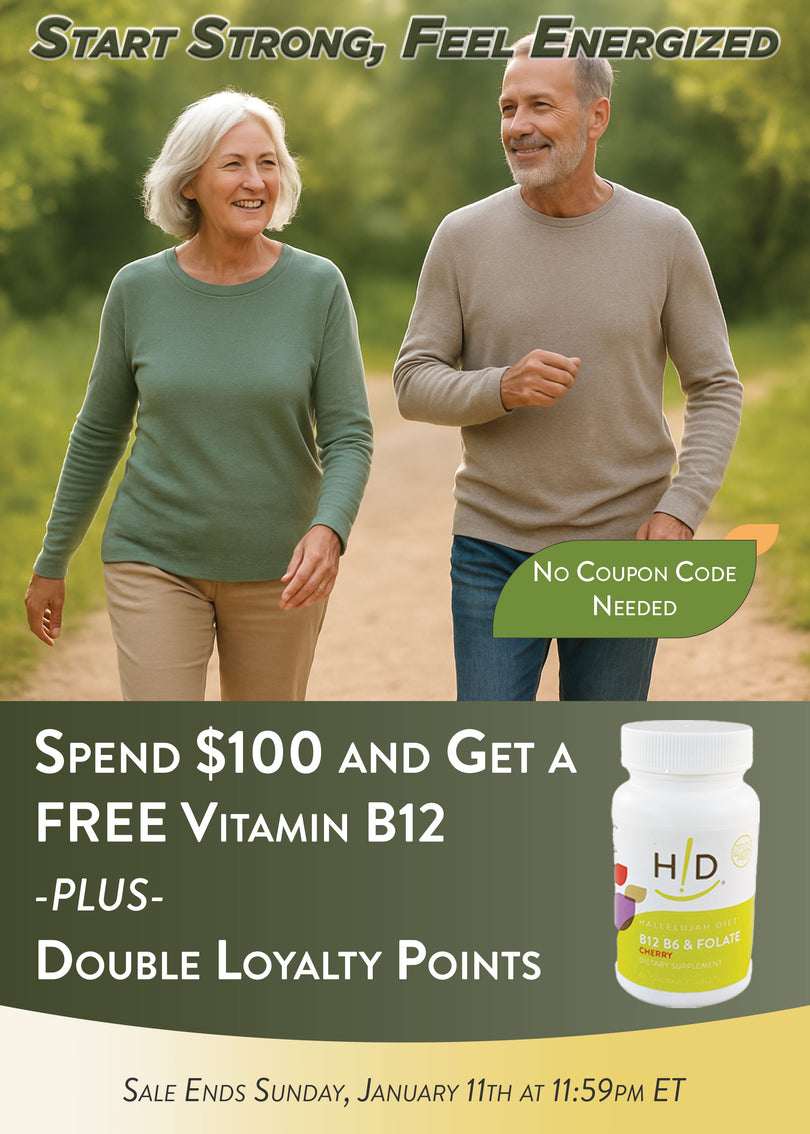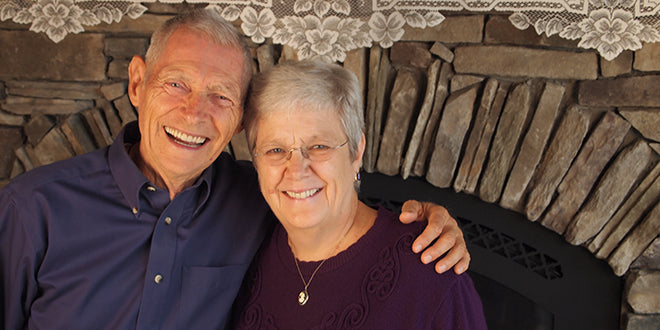A common question people ask us at Hallelujah Acres is “Where do you get your protein?” Quickly followed up with, “How can you get enough protein without eating meat?” For many of you who have been dining on plant-based foods for years, you can readily respond with the vast numbers of plants that have plenty of assimilable protein that doesn’t come with the extra baggage of fat, cholesterol, toxins and damage.
There are studies coming out however, that for certain segments of the population, especially the active as well as the elderly, those under metabolic stress, and pregnant and nursing mothers, that protein consumption should be carefully monitored. These groups tend to need additional consistent protein. The active people seem to need additional amounts as they burn through it quite easily. The elderly people need additional protein for other reasons: they may not have the quality of digestive health that can absorb and uptake proteinvery well and with their weakened immune system, the protein can continue to assist in maintaining their strength. Hallelujah Acres has been working on creating a high quality blend of various types of plant-based proteins for several years. The rigorous standards that we have set have finally been achieved. We are proud to introduce Essential Protein, a one of a kind 100% organic vegan protein that combines our exclusive organic pea protein with hemp, chia and rice to create a mixture of the important amino acids that are essential to the skeletal structure and strong immune system we are striving for.
Protein is one of the basic building blocks of the human body, making up about 16 percent of our total body weight. Muscle, hair, skin, and connective tissue are mainly made up of protein. However, protein plays a major role in all of the cells and most of the fluids in our bodies. In addition, many of our bodies' important chemicals -- enzymes, hormones, neurotransmitters, and even our DNA -- are at least partially made up of protein. We need to eat protein every day because it is unlike other nutrients. Some, like vitamin B12, are stored within the body and released when needed (so though we must consume a certain amount on average, we don’t have to do so every day in order to keep ourselves healthy).
Unfortunately, we have no way to store amino acids. We have a tremendous capacity to store fat in fat cells, and a very limited capacity to store glucose (as glycogen in our muscles and liver)—but we must either use amino acids to synthesize proteins, burn them for energy, convert them to glucose, or (very rarely, and if all else fails) excrete them.
Therefore, humans have a daily requirement for each one of the amino acids necessary to life, in the quantities required by whatever proteins the trillions of cells in our bodies are making (minus our ability to synthesize some of them).
Essential Proteins
Organic Pea Protein, Organic Chia Seed, Organic Hemp Seed, Organic Pumpkin Seed, Organic Coconut Flour, Organic Rice Protein, Organic Sunflower Lecithin and Organic Acacia gum.What Flavor is Protein?
This is a plain protein powder, so you can mix it with any smoothie recipe and make your own flavor. Whether you are a mom, a female athlete, a grandma or just a guy who feels like he needs a bit more protein in his diet, you can’t go wrong with an organic, vegan protein. Who knows, maybe that little bit extra protein in your diet was just the change you were looking for!
Do All Sources of Protein Have Heavy Metals?
With concerns over pesticides and heavy metals, you want a clean source of protein. Rice protein can be a source of heavy metals (if it’s not from California). Essential Protein is a blend of several organic whole food sources of protein that has been tested for metals and is safe.Every batch will be tested. Essential Protein contains no soy and is easily digestible. There are 24 grams of protein per 37.5 gram serving. So, you get 64% protein. Several studies have shown the benefits of vegetable protein when compared with animal protein. A study of international rates of hip fractures showed that vegetable foods (and thus vegetable protein) was very protective, but as countries consumed more animal protein than vegetable protein, their rates of hip fractures dramatically increased. Vegetables were protective but animal products (and animal protein) were damaging.1 Your total daily protein needs are based on your gender, age, size and activity level. The RDA for protein is 71 grams daily during pregnancy and lactation, 46 grams per day for other women and 56 grams of protein daily for men, according to the Institute of Medicine. Physically active adults benefit from a daily consumption of up to .91 grams of protein per pound of their body weight, states the International Society of Sports.
1. Frassetto LA, Todd KM, Morris RC, Sebastian A. Worldwide incidence of hip fracture in elderly women: relation to consumption of animal and vegetable foods. J Gerontol A BiolSci Med Sci. 2000;55(10):M585–92. Available at: http://biomed.gerontologyjournals.org/cgi/content/abstract/55/10/M585.







